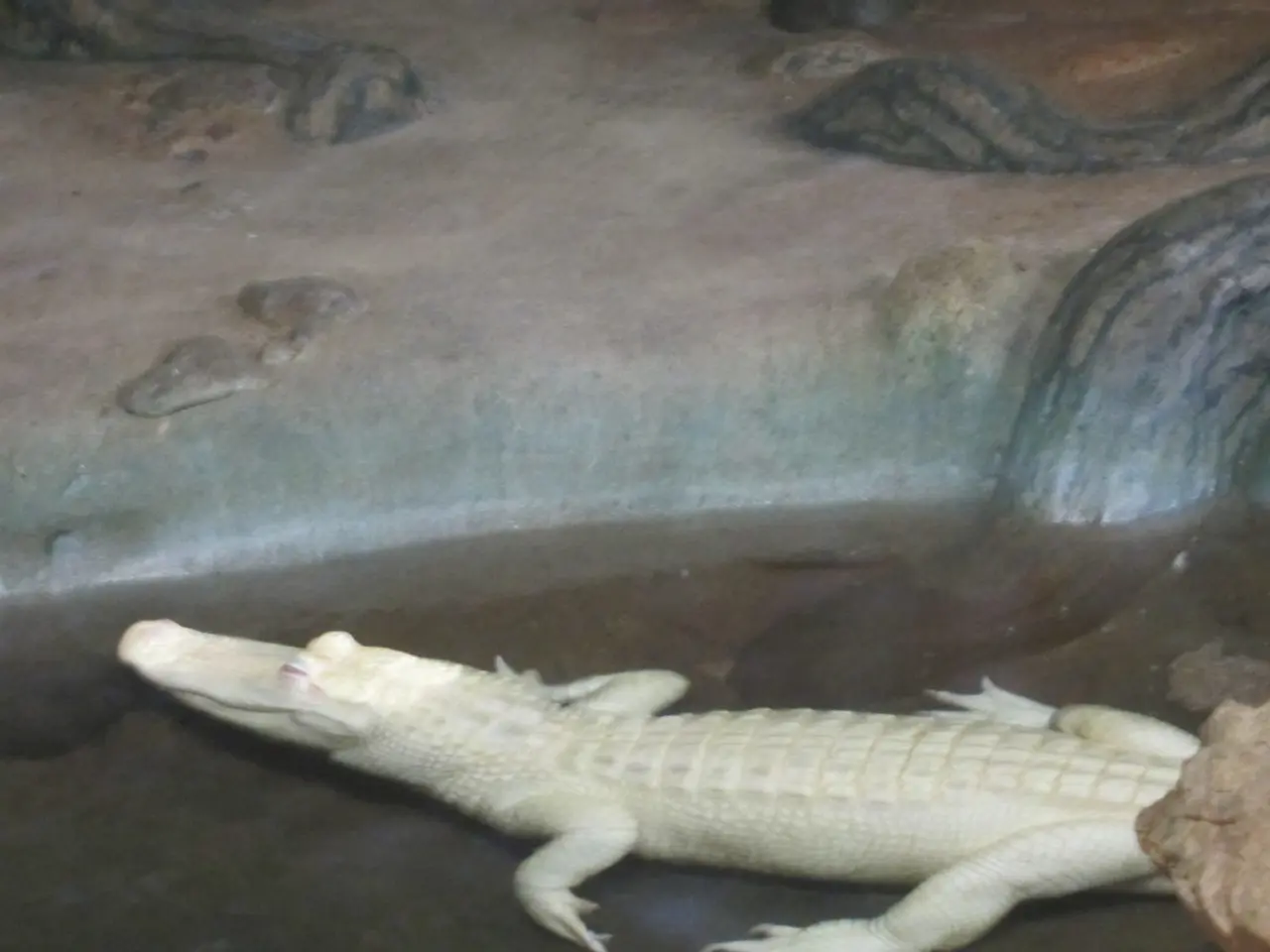Crocodiles of the Nile engage in a confrontation in Africa.
Play Behaviour Discovered in Crocodilians
A groundbreaking study published in the journal Animal Behavior and Cognition has provided the first documented evidence of play behaviour in crocodilians, adding these reptiles to the list of animals known to engage in such activities.
The study, led by biologist Vladimir Dinets from the University of Tennessee at Knoxville, observed over 3,000 hours of crocodilian behaviour, with more than 15 separate instances of play recorded. These observations included crocodilians playing with inflatable balls, bubbles, water, bright flowers, and even each other.
While the study does not provide specific evidence that play in crocodilians directly benefits their physical or mental well-being, it does suggest that these reptiles exhibit complex and intelligent behaviours beyond basic survival activities. This recognition comes from behavioural studies highlighting their cognitive abilities and social interactions.
For instance, crocodilians have been observed engaging in activities that imply problem-solving and flexible response strategies, which are sometimes interpreted as forms of play or exploratory behaviour. Examples include young crocodiles swallowing stones (gastrolithy) for buoyancy control, which may also involve exploratory tendencies in juveniles.
Similarly, social interactions in related semi-aquatic reptiles like giant South American river turtles show that social learning and interaction can be crucial in their development. This hints that crocodilian relatives might also exhibit social behaviours akin to play that help in learning and development.
However, it's important to note that direct scientific studies specifically documenting play behaviour like that seen in mammals are sparse in crocodilians. The general consensus in reptile cognition research is shifting towards recognizing a higher level of intelligence and behavioural complexity, including potential play, in crocodilians than previously understood.
Gordon Burghardt, another biologist at the University of Tennessee at Knoxville, developed a scientific definition for play. According to his definition, play must be repeated, pleasurable behaviour done for its own sake that's similar, but not identical to, other behaviours in which the animal regularly engages. It must also be seen when the animal is healthy and not under stress.
Dinets, recognising the importance of his work, jokingly states that he does not want to have all the fun in the study of crocodilian play behaviour. He is hopeful that further work in this area will provide valuable insights into the subject of play but intends to leave further research for other scientists.
While the study provides a significant step forward in understanding play behaviour in crocodilians, more empirical, focused studies would be needed to characterize and confirm the extent and types of play in these reptiles concretely. Despite the limited evidence, the discovery of play behaviour in crocodilians adds to the growing body of evidence suggesting that these reptiles are capable of more sophisticated behaviours than traditionally believed.
- This recognition of play behavior in crocodilians by behavioral studies highlights their cognitive abilities and social interactions, linking the topics of wildlife, animal behavior, and science.
- The discovery of play behavior in crocodilians adds to the growing body of evidence suggesting that these reptiles are capable of more sophisticated behaviors, connecting the themes of nature, health-and-wellness, and health.
- Dinets, while acknowledging the importance of his work, offers his findings for further exploration, emphasizing the potential for adventure in the study of crocodilian play behavior, thereby tying the ideas of adventure and science together.




